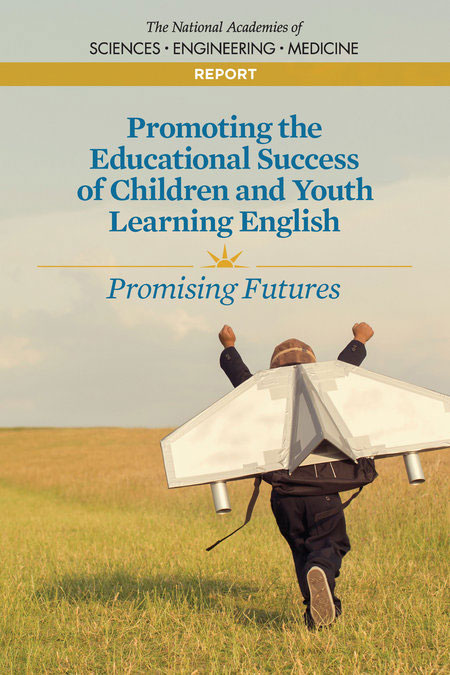The National Academies of Sciences, Engineering, and Medicine
Ruby Takanishi and Suzanne Le Menestrel, Editors
This report examines the evidence on the developmental progress and school success of English learners, who live in homes in which a language other than English is spoken, from birth through grade 12.
Educating dual language learners (DLLs) and English learners (ELs) effectively is a national challenge with consequences both for individuals and for American society. Despite their linguistic, cognitive, and social potential, many ELs—who account for more than 9 percent of enrollment in grades K-12 in U.S. schools—are struggling to meet the requirements for academic success, and their prospects for success in postsecondary education and in the workforce are jeopardized as a result.
Promoting the Educational Success of Children and Youth Learning English: Promising Futures examines how evidence based on research relevant to the development of DLLs/ELs from birth to age 21 can inform education and health policies and related practices that can result in better educational outcomes. This report makes recommendations for policy, practice, and research and data collection focused on addressing the challenges in caring for and educating DLLs/ELs from birth to grade 12.
Contributors: The National Academies of Sciences, Engineering, and Medicine; Division of Behavioral and Social Sciences and Education; Health and Medicine Division; Board on Children, Youth, and Families; Board on Science Education; Committee on Fostering School Success for English Learners: Toward New Directions in Policy, Practice, and Research. Committee members include CAL Board of Trustees members Eugene Garcia, Arizona State University (emeritus) and Fred Genesee, McGill University (emeritus).

